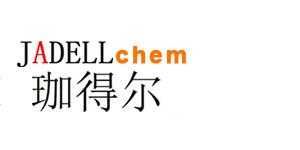Recombinant Mouse Interleukin-6, His (CHO-expressed) 是带有 His 标签的 白细胞介素6, 是具有多功能的细胞因子,可调节多种免疫和炎症反应。
Synonyms
rMuIL-6, His; B cell differentiation factor; IL6 ; 重组小鼠白细胞介素- 6, His (CHO 表达)
Species
MouseSource
CHO Accession
P08505 Gene ID
16193 Molecular Weight
24-26 kDa AA Sequence
FPTSQVRRGD FTEDTTPNRP VYTTSQVGGL ITHVLWEIVE MRKELCNGNS DCMNNDDALA ENNLKLPEIQ RNDGCYQTGY NQEICLLKIS SGLLEYHSYL EYMKNNLKDN KKDKARVLQR DTETLIHIFN QEVKDLHKIV LPTPISNALL TDKLESQKEW LRTKTIQFIL KSLEEFLKVT LRSTRQTHHH HHH Biological Activity
The ED50 is <3 pg/mL as measured by 7TD1 cells. Appearance
Lyophilized powder. Formulation
Lyophilized after extensive dialysis against PBS. Endotoxin Level
<0.2 EU/μg, determined by LAL method. Reconstitution
Reconstitute the lyophilized recombinant Mouse Interleukin-6, His (CHO-expressed) (rMuIL-6, His) to 100 µg/mL using ddH2O or diluted with PBS. Storage & Stability
Lyophilized recombinant Mouse Interleukin-6, His (CHO-expressed) (rMuIL-6, His) is stored at -20°C. After reconstitution, it is stable at 4°C for 1 week or -20°C for longer. It is recommended to freeze aliquots at -20°C or -80°C for extended storage. Shipping
Room temperature in continental US; may vary elsewhere. Background
Interleukin-6 (IL-6) is one of the most important mediators of the acute phase reaction in liver[1]. Interleukin 6 (IL-6), promptly and transiently produced in response to infections and tissue injuries, contributes to host defense through the stimulation of acute phase responses, hematopoiesis, and immune reactions. IL-6 promotes specific differentiation of naïve CD4+ T cells, thus performing an important function in the linking of innate to acquired immune response. IL-6, in combination with transforming growth factor (TGF)-β, is indispensable for Th17 differentiation from naïve CD4+ T cells, but that IL-6 also inhibits TGF-β-induced Treg differentiation[1]. |



